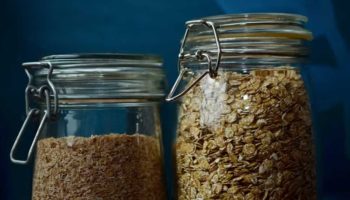The virtues of eggs on our body are well known. Full of protein, minerals (iron, zinc, selenium) and vitamins (A, D, E and B12), the egg is one of the most nutritious foods there is. It is even one of the pillars of a healthy diet. But if its health capital has been largely proven, do you know that its shells are also very beneficial for plants? In fact, eggshells are very rich in calcium and nutrients and act as a natural fertilizer for the growth of plants. But not only. They are ideal to repel certain parasites such as slugs and other creepy crawlies, prevent plant diseases and remain very effective for composting. In addition, they are biodegradable! From now on, after breaking your eggs to make an omelet, you will remember to save your shells and not throw them in the trash! You still need to know all the secrets to use them wisely. In this article, discover all the little tips to take good care of your beautiful indoor and outdoor plants.
1. Pest control
Are your plants often attacked by unwanted hosts such as slugs and snails? We have the solution for you! Take an eggshell, crush it into small sharp pieces and place the remains around the plant. Don’t bury them, just make a wreath around them. And there you have it; you’ve just installed a barrier against the crawlers that won’t dare come near to avoid getting hurt.
2. Soil without acid
We know that plants need soil to grow healthy. But for optimal growth, the soil must always be favorable for them. The problem is that most soils are acidic, so not really beneficial for many plants that can’t tolerate that acidity. Again, eggshells will save the day. In fact, they are an important source of calcium, magnesium and phosphorus that balance the pH of the compost and fight the acidity of the soil. To do this: Crush the shells into a powder and mix them with the soil surrounding your plants. When watered, they release their properties and reduce the binding effect of the acid.
3. An excellent fertilizer
As mentioned above, eggshell is an excellent fertilizer for your plants, shrubs and flowers. This natural fertilizer provides your plants with all the nutrients they need to grow. For example, did you know that eggshells are highly recommended for growing tomatoes? They are known to prevent “apical necrosis”, the most common disease that affects tomatoes in our vegetable gardens.
Here are some tips to keep your plants healthy:
Use the shells of 6 eggs and put them in a pot with 3 quarts of water. Bring to a good boil. Once the water has cooled, you can use it on your plants.
Another method, a little more complex, but much faster and more efficient. Crush 12 eggshells with a rolling pin or wooden spoon. Put them in a container with a lid and set aside. Sprinkle a spoonful or two of this powder on the soil, at the base of your plants, for at least 40 days. Calcium will be released gradually every day. This remedy works perfectly for your houseplants as well.
-
A natural pot
You can also use your eggshells as a natural pot for seedlings. In this way, you will always have a high source of calcium for this growth phase: the fundamental basis for your plants to grow very healthy and with the necessary nutrients. So, consider recycling your eggshells into very ingenious containers to make the seeds of your plants and flowers germinate. It’s easy and very ecological! Boil your egg and after boiling, remove only the top of the shell, leaving the widest part whole. Let it sit in the same container you bought the eggs in and fill it with fertile soil and seeds.
-
Fight flea beetles
As we said above, eggshell is an excellent repellent for all kinds of small animals. The flea beetle is one of them. This tiny insect is so tiny that you probably won’t spot it. However, you often notice small holes in the leaves. Yes, it is indeed responsible! To avoid this problem, crush eggshells into a powder and add them to the soil. You will definitely get rid of this insect!
As you must have understood, eggshells are a real treasure trove in the world of gardening. And their use has become a real trend in recent years. Organic fertilizer, compostable waste, anti-crawling, prevention of certain plant diseases… With all this, it no longer matters to get rid of it!



